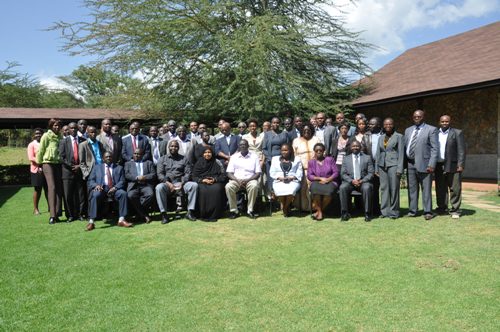
Date Published: 30 Jan, 2015
Kenya’s Environment, Water and Natural Resource Cabinet Secretary, Prof Judi Wakhungu says States are obliged under Nagoya Protocol to develop appropriate domestic measures for legal, policy and administrative framework with clarity and certainty to effectively implement the protocol.
The framework, Prof. Wakhungu says, should have clear and well defined institutional arrangement derived from their mandate. “It’s urgent that we review our policy and legislative instruments to establish if they are in line with the Nagoya protocol and our constitution”, Prof. Wakhungu said in a speech read on her behalf by the Principal Secretary in the state department of Environment, Dr. Richard Lesiyampe at a Nagoya protocol implementation workshop in Naivasha.
The high level workshop brought together representatives from the Senate, National Assembly, Universities, top ministries officials, Non –governmental organizations, research institutions, representatives of indigenous communities, and the lead organizations in the implementation of the protocol, namely Kenya Wildlife Service (KWS), Kenya Forest Service (KFS) and National Environment Management Authority (NEMA).
Prof. Wakhungu said there is need to benchmark practical examples from other countries such as South Africa, Brazil, India, Norway, Costa Rica and Switzerland among others on experiences and lessons learnt in the implementation of the protocol.
Nagoya Protocol entered into force on October 12, 2014. Kenya ratified it on May 1, 2014. The protocol is binding and currently 54 member states have ratified it. All the party states are obliged to meet their obligations through development of appropriate domestic measures for effective implementation of the Protocol. Some of the Key obligations include article 6 of the Protocol where each party is required to put in place access and benefit-sharing policy, administrative, legislation or regulatory measures.
Participants at the high level implementation workshop came up with key resolutions and way forward. They are currently in the process of fine-tuning them to act as a guide to the country in the implementation of the protocol.





